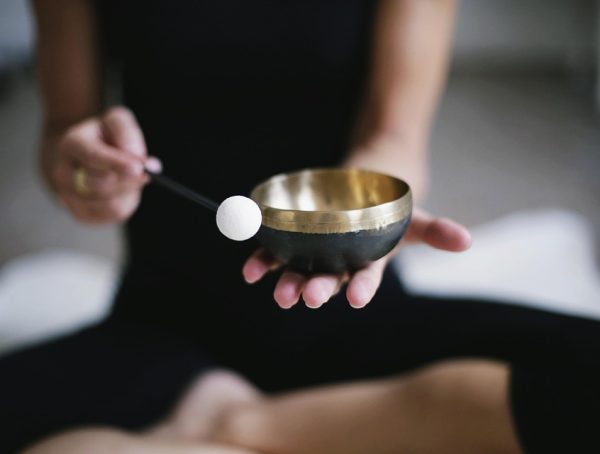Unlock Your Potential: The Benefits of Meditation for College Students
In the hustle and bustle of college life, students often find themselves juggling lectures, assignments, social events, and part-time jobs. This dynamic lifestyle can be exhilarating but also overwhelming. Many students experience anxiety, stress, and a lack of focus, which can hinder their academic performance and overall well-being. One effective tool that can help navigate these challenges is meditation. By incorporating meditation into your daily routine, you can unlock your potential in ways you never thought possible.
The Science Behind Meditation
Meditation has gained a reputation as a tool for relaxation and wellness, but the benefits extend far beyond simple stress relief. Research demonstrates that meditation can lead to:
-
Enhanced Focus and Concentration: Meditative practices improve your attention span and cognitive performance. A study published in the journal Consciousness and Cognition highlighted that even short periods of meditation can yield noticeable improvements in focus and cognitive flexibility.
-
Stress Reduction: The pressures of college can weigh heavily on students. Meditation activates the body’s relaxation response, reducing levels of the stress hormone cortisol. A meta-analysis published in Health Psychology found that mindfulness meditation significantly decreased anxiety and stress levels.
-
Emotional Well-being: Meditation encourages self-awareness and emotional regulation. It can lead to improved mood and lowered susceptibility to feelings of depression. In a longitudinal study conducted by researchers at the University of Massachusetts, participants who practiced mindfulness reported greater emotional resilience over time.
-
Improved Sleep Quality: College students often sacrifice sleep for studying or socializing. However, good sleep is crucial for cognitive function and overall health. Meditation has been shown to promote better sleep by calming the mind and reducing insomnia symptoms.
- Enhanced Academic Performance: By promoting mental clarity and emotional stability, meditation can directly improve academic performance. Several studies indicate that students who engage in regular meditation rituals experience better grades and test performance.
Action Steps to Get Started With Meditation
If you’re intrigued by the potential benefits of meditation, you may wonder how to get started. Here are actionable steps to weave meditation into your daily life:
1. Set Aside Time
Identify a specific time each day—preferably in the morning or before bed—dedicated to meditation. Even 5-10 minutes can be beneficial. Commit to this time in your schedule as you would any class or meeting.
2. Create a Comfortable Space
Find a quiet, comfortable place where distractions are minimal. This could be in your dorm room, a campus park, or a cozy library nook. Having a designated space can help signal your brain that it’s time to meditate.
3. Choose a Technique
Experiment with different types of meditation techniques to find what resonates with you. Common forms include:
- Mindfulness Meditation: Focus on your breath and observe your thoughts without judgment.
- Guided Meditation: Use an app or online resource to follow a guided session.
- Transcendental Meditation: Recite a mantra to quiet your mind.
4. Use Apps to Aid Your Practice
Consider utilizing meditation apps such as Headspace, Calm, or Insight Timer. These platforms offer structured meditations catering to various needs, including stress reduction, sleep, and focus enhancement.
5. Start Small
Begin with short sessions of 5 minutes and gradually increase the duration as you become more comfortable. The key is consistency rather than duration; it’s better to meditate for a few minutes each day than for longer periods sporadically.
6. Stay Patient and Open-minded
Meditation is a skill that takes time to develop. Some sessions may feel more productive than others. Approach your practice with patience and remain open to the experience, knowing that the benefits will accumulate over time.
7. Challenge Yourself
Once you establish a routine, challenge yourself to deepen your practice. Try incorporating longer sessions, exploring different meditation styles, or attending group meditations either on or off-campus.
8. Reflect on Your Progress
At the end of each week or month, take a moment to reflect on how meditation has impacted your focus, stress levels, and overall well-being. Journaling about your experiences can help solidify the benefits and motivate you to continue.
Conclusion
Incorporating meditation into your daily routine as a college student can provide immense benefits for your mental, emotional, and academic life. By enhancing focus, reducing stress, and promoting emotional well-being, meditation can empower you to unlock your true potential. You have the ability to cultivate a practice that suits your lifestyle and helps you navigate the challenges of college life more effectively.
Remember, everyone’s journey with meditation is unique. Give yourself the grace to explore and find what works best for you, and don’t hesitate to share your experiences with friends—it may inspire them to join you on this rewarding journey.
As you embark on this path of self-discovery and growth, remember this:
"The mind is everything. What you think you become." — Buddha
For more inspiring content and tips on mental well-being, follow Kevin on Instagram @KSteineman. Embrace your journey and unlock your potential!
You might also like
More from Meditation
The Role of Mantras in Transcendental Meditation: A Deep Dive
The Role of Mantras in Transcendental Meditation: A Deep Dive Transcendental Meditation (TM) has garnered a significant following across the globe, …
The Science Behind Meditation: Improving Mental Health Naturally
The Science Behind Meditation: Improving Mental Health Naturally In today's fast-paced world, the pursuit of mental wellness has become paramount. Thousands …
Understanding the 7 Types of Meditation for Beginners
Understanding the 7 Types of Meditation for Beginners: A Path to Inner Peace Meditation has become a popular practice in recent …


































